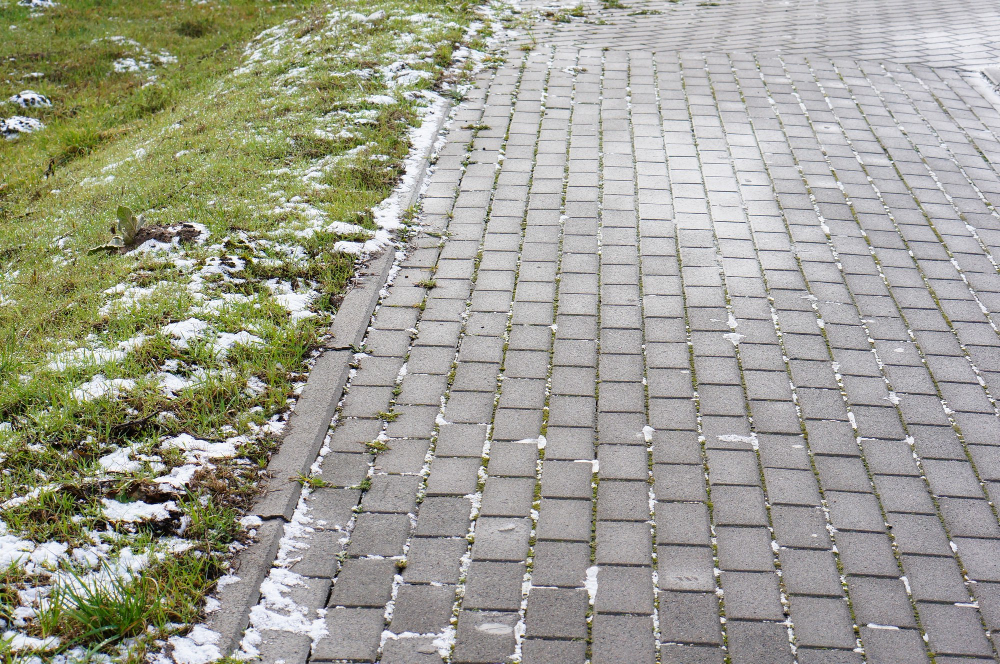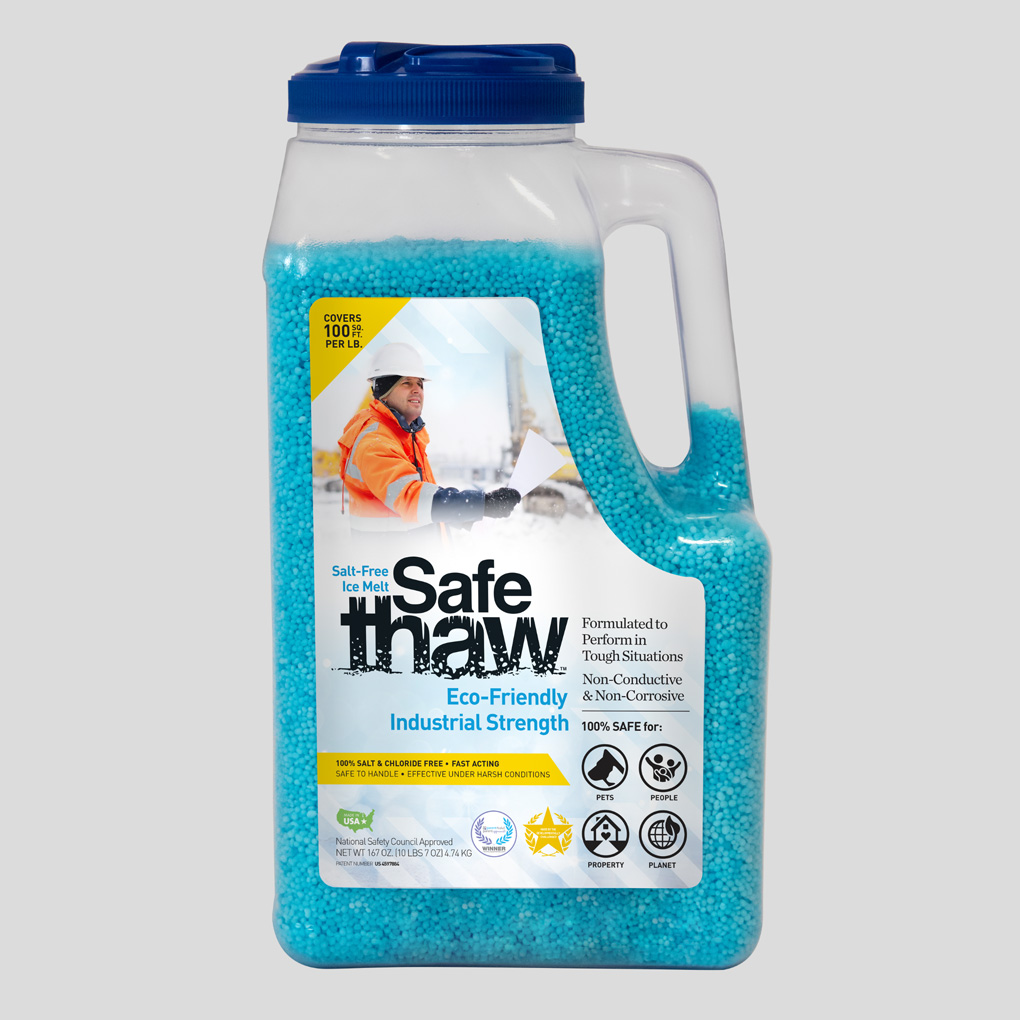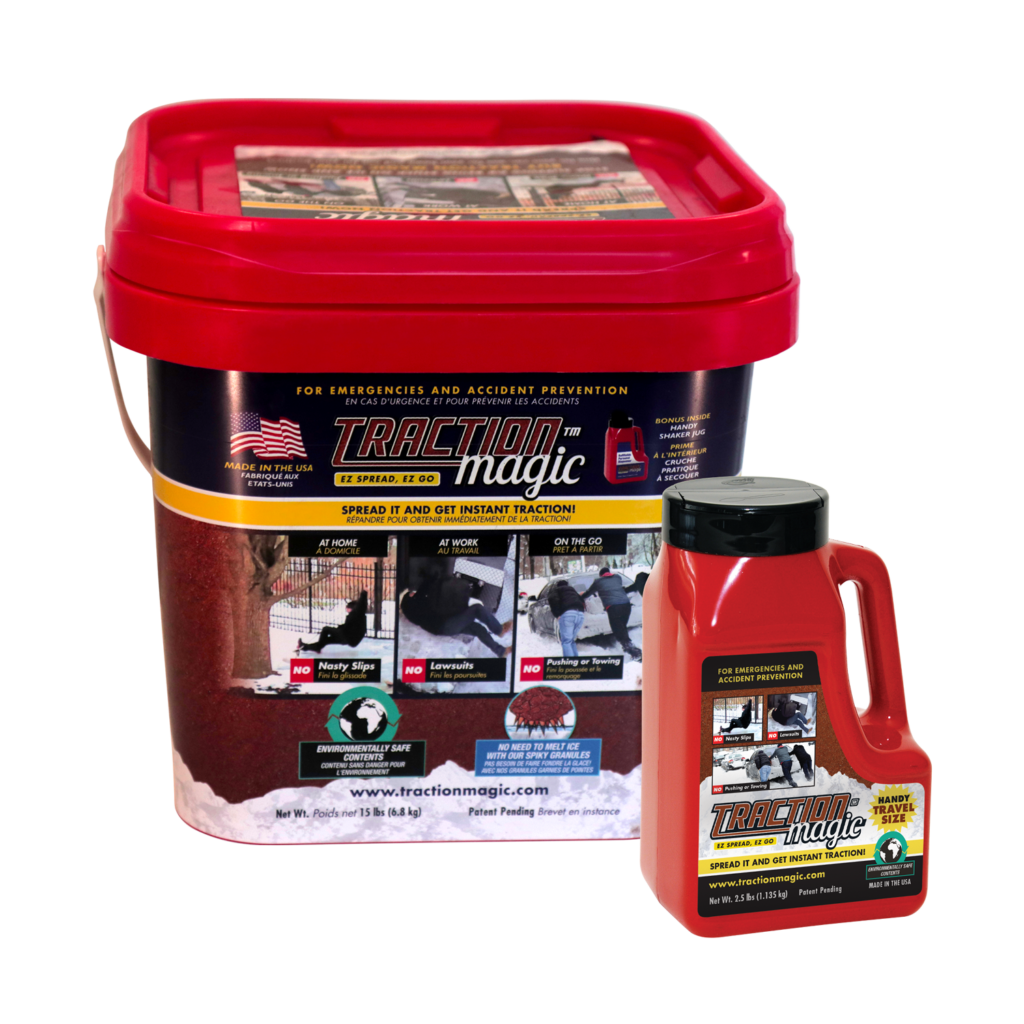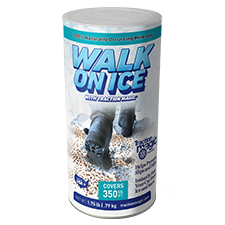Concrete Pavers? Here’s How To Melt Ice

Many property owners love to have a magnificent paver driveway or walkway with cheerful colors, rich textures, and antique patterns. And they want to maintain its eye-catching beauty throughout the year, particularly during winters, by protecting it from ice and snow and the harms of ice melt. You should know which ice melting product is the best ice melt for pavers and how to melt the ice.
Understanding the best ways to prevent the pavers from the effect of snow and ice is vital. Let us learn more about the safest ice melt for concrete and why we need them.
How to Melt Ice Without Damaging Concrete?
Concrete, including pavers, is a porous material, which means it can absorb water and any substances mixed with it. Using traditional ice melt products containing chlorides can lead to surface damage and pitting over time. Here’s how to melt ice without harming your concrete:
1. Choose Chloride-Free Ice Melt: So, what ice melt is safe for concrete? Opt for a chloride-free ice melt like Safe Thaw. This type of ice melt is safe for concrete surfaces, preventing damage and extending the life of your pavers.
2. Apply the Right Amount: Avoid overapplication of ice melt, as excess product can lead to concrete damage. Follow the recommended application rates provided by the manufacturer.
3. Sweep Away Excess Ice Melt: After the ice has melted and the area is safe to walk on, sweep away any remaining ice melt. This helps prevent prolonged exposure to the product, which can potentially affect the concrete surface.

Best Ice Melt For Pavers
Generally, all deicing products lower the freezing point of the water brine, that’s why they all seem to be the same, but this is not the reality. The ice melting products are prepared with different kinds of chemicals, and so some are safe while others are not. Here is the information that might help you to choose the safest ice melt for concrete pavers.
- Sodium Chloride (Rock Salt): Rock salt is a traditional ice melt available at a lower price. Still, it cannot perform at a temperature below 25 °F, and it can damage the concrete due to freeze-induced expansion pressure built during freeze/thaw cycles of the ice melt process, leaving a white powdery residue.
- Calcium Chloride: It is relatively less harmful and performs faster than Rock Salt at a low temperature of -25 °F. Calcium chloride is less toxic to the vegetation; however, it is still detrimental to concrete and metal as it leaches out moisture and some chemicals, leaving a white powdery residue.
- Magnesium Chloride: It is expensive and preferred for domestic use only due to its pet-safe quality. However, it is ineffective at shallow temperatures and can work at a minimum of -5°F temperature. In addition, magnesium chloride is a water-based product that is only 48% active and becomes ineffective quickly.
- Urea: Urea is commonly known as a fertilizer but is also one of the best ice melt. It combines carbon dioxide and ammonia and contains 46% Nitrogen. As a result, urea is the safest deicer and an excellent choice for people who want to avoid salt and chloride’s side effects on concrete pavers.
Safe Thaw: The Safest Ice Melt For Concrete
Concrete is somewhat porous, and water can easily seep into the concrete through pores or minute cracks; if that water gets the opportunity to freeze within your concrete, it can create large cracks and gaps. Safe Thaw, a urea-based ice melt, is the perfect solution to this problem as it doesn’t allow the water brine to refreeze and helps prevent cracks on concrete.

Safe Thaw
Safe Thaw was created as the ice management solution for tough winter environments. Ideal in commercial and industrial properties, shops, government agencies, bridges, and construction.
Safe Thaw is a chloride-free industrial ice melt that is not only highly effective at melting ice and snow but also safe for concrete, pets, and the environment.
Here are some reasons why Safe Thaw is the ideal choice for your pavers, parking lots, and patios:
- Chloride-Free: Safe Thaw is free from harmful chlorides that can corrode and damage concrete surfaces over time.
- Safe for Pets: It won’t harm your furry friends’ paws, making it a safe choice for homes with pets.
- Safe for Concrete: Safe Thaw is non-corrosive and won’t harm concrete, including pavers, patios, and parking lots.
- Fast-Acting: Its patented dual-effect formula quickly breaks surface tension and melts ice, making it highly efficient.
- Eco-Friendly: Safe Thaw is environmentally friendly, making it a responsible choice for those who care about the planet.
100% salt & chloride-free, fast acting Ice Management Solution
Conclusion
Salt and chloride-based ice melt products can damage the concrete of your pavers and cause corrosion to the metal and rebar. Whereas Safe Thaw – is recommended as safe and the best ice melt for concrete pavers. You can apply it around the pets, lawns, and machinery without worry.
FAQs
Try Also Our Other Winter Safety Products:
Traction Magic
Stay safe on slippery surfaces with a product that’s 100% natural and safe for pets, people, and your property. Whether it’s sidewalks, steps, or even your car’s traction, Traction Magic is the go-to choice.

Walk On Ice
The handy disposable canister can be taken everywhere, with the same 100% naturally occurring minerals that provide instant traction on ice or snow. Use it on sidewalks, steps, or as an instant traction agent for your car.



